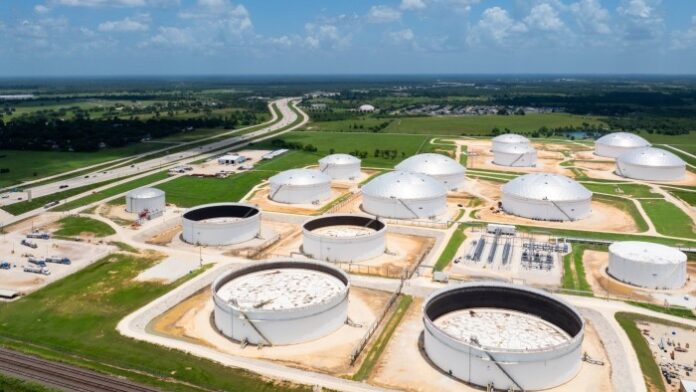Unlock the Editor’s Digest for free
Roula Khalaf, Editor of the FT, selects her favourite stories in this weekly newsletter.
Oil prices jumped to a five-month high after the US bombed Iran’s nuclear facilities, increasing the likelihood that Tehran will respond by attacking energy infrastructure in the region or shipping in the Strait of Hormuz.
Brent crude, the international benchmark, soared as much as 5.7 per cent after the market opened on Sunday evening, but later cut its gains to about 3 per cent to trade at $79 a barrel. US marker West Texas Intermediate rose by a similar margin to $76.83.
Further moves in the oil price this week will depend on exactly how the Islamic republic or its proxies such as the Houthis choose to retaliate, analysts said.
“A clear red line has been crossed,” said Jorge León, head of geopolitical analysis at energy consultancy Rystad, noting the weekend’s bombing raids marked the first time the US has directly attacked Iranian territory.
“In an extreme scenario where Iran responds with direct strikes or targets regional oil infrastructure, oil prices will surge sharply,” he said. “Even in the absence of immediate retaliation, markets are likely to price in a higher geopolitical risk premium”.
Oil prices have already risen about 14 per cent since Israel launched its first surprise attack on Iran 10 days ago. Higher oil prices are likely to ripple through to other energy markets, such as petrol, something that could prompt a fresh burst of inflation across the world.
The entry of the US into the war has introduced “a new layer of volatility into energy markets” leaving traders waiting for “Tehran’s next move,” León said.
US President Donald Trump has said Iran of further attacks if Tehran does not “make peace”, but the Islamic republic had previously pledged to retaliate if the US became involved. Hardliners in Iran were already calling for action on Sunday, with the influential editor of the Kayhan newspaper demanding that the country attack the US naval fleet in the Gulf and stop western ships moving through the Strait of Hormuz.
About a third of the world’s seaborne oil supplies pass daily through the narrow waterway separating Iran from the Gulf states, and any attacks on shipping in the strait would immediately cause energy prices to soar, analysts said.
Iran has previously threatened to shut the strait though analysts believe that it would struggle to completely block the waterway due to the presence of the US Navy’s Fifth Fleet in Bahrain.
“Security officials maintain that it would be difficult for Iran to fully close the Strait of Hormuz for an extended period,” said Helima Croft, a former CIA analyst who is now at RBC Capital markets. “That said, multiple security experts contend that Iran has the ability to strike individual tankers and key ports with missiles and mines,” she said.
Iran also uses the waterway to ship its oil to China and other importers.
An alternative response could see Iran attack oilfields and infrastructure in US allies in the region, such as Saudi Arabia and Qatar. Anxious about getting drawn into the conflict, Gulf countries have repeatedly called for an end to hostilities and a return to dialogue.
In a statement on Sunday morning, Doha’s foreign ministry warned that the “dangerous tension” in the region could have “catastrophic repercussions”. Saudi Arabia said it was following developments in Iran with “great concern”.
Analysts at S&P Global Commodity Insights said the rally in oil prices could ease by Monday morning if there was no immediate Iranian response.
“The key question is what comes next,” James Bambino and Richard Joswick at S&P said. “Will Iran attack US interests directly or through allied militias? Will Iranian crude exports be suspended? Will Iran attack shipping in the Strait of Hormuz?”
Even if Iranian crude exports are disrupted, increased production from the Opec+ cartel and current global inventories mean the oil market will remain sufficiently supplied, so long as the Strait of Hormuz remains open, they added.
Iran exports about 2mn barrels of oil a day, while about 21mn barrels from Iran, Iraq, Kuwait, Saudi Arabia, Qatar and the United Arab Emirates pass daily through the Strait of Hormuz.
Analysts said the longer geopolitical tensions in the Middle East stay elevated the greater the risk of a prolonged period of high oil prices, which would lift inflation and dent global economic growth.
“The Trump administration will likely find it difficult to balance crippling Iran’s nuclear ambitions while avoiding a prolonged spike in crude oil prices, in turn, elevating inflation and weakening the US economy,” said Michael Alfaro, chief investment officer at Gallo Partners, a hedge fund focused on energy and industrials.


